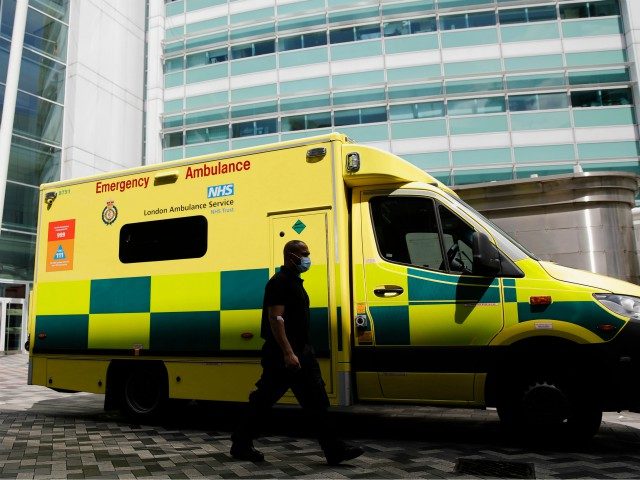London Ambulance Service callouts to suicides or suicide attempts have almost doubled in a year, with the organisation saying it had seen a rise in the number of visits related to mental health issues since the start of the pandemic.
On Wednesday, LAS revealed that it is seeing an average of 37 callouts to suicide or suicide attempts a day, compared to 22 in the same period last year and 17 just five years ago.
The London Evening Standard reported that between April and September — after Prime Minister Boris Johnson began a series of lockdowns and social distancing rules in March — that the ambulance service has seen 6,846 suicide emergencies. The highest number of callouts by demographic was males aged 21-25.
While the newspaper says there is no definitive correlation between coronavirus restrictions and the increase in mental health problems, it noted that the LAS had reported last week an increase in the calls out for mental health issues since the March lockdown. Some one-in-ten callouts had a mental health element.
A University of Glasgow study published this month in the British Journal of Psychiatry revealed that one in ten people had suicidal thoughts during the first six weeks of lockdown, rising by two per cent. Researchers said that while it may seem like a small increase, it was significant given the short space of time it grew. Suicide charity the Samaritans called the research “stark”, adding, according to the Daily Mail, that the figures “leave us with no doubt Covid-19 has had a detrimental impact on the nation’s mental health”.
The Office of National Statistics revealed in August that nearly one-in-five (19 per cent) Britons reported feeling some kind of depression in June, nearly doubling on the preceding nine months to March 2020, when 10 per cent of people reported feeling depressed.
50,000 Children’s Surgeries Postponed, Deaths on Transplant Waiting List Near-Doubled Due to Lockdown: Report https://t.co/gOWbBWYodF
— Breitbart London (@BreitbartLondon) October 20, 2020
Elaine Fox, professor of cognitive and affective psychology at the University of Oxford, said of the ONS report that it “presents some worrying data on the rise of depressive symptoms during the pandemic”. The figures showed that young people, women, the disabled, and those unable to afford the impact of lockdown were the most vulnerable. Professor Fox added that “economic factors are likely to play an important role in the nation’s mental health in the coming months and years”.
The BBC reported on Thursday that medical and mental health professionals predicted there might be long-term psychological impacts of the pandemic, including a rise in obsessive-compulsive disorder, anxiety, and chronic loneliness.
Steven Taylor, a professor in psychiatry at the University of British Columbia, told the broadcaster: “For people with a genetic predisposition toward some forms of OCD (i.e. contamination obsessions and cleaning compulsions) the stress of Covid-19 is likely to trigger or worsen OCD.”
“Some of these people will become chronic germaphobes unless they receive appropriate mental health treatment,” he added.
Yuko Nippoda, a psychotherapist and spokeswoman for the UK Council for Psychotherapy, warned that social isolation or “lack of meaning” in life could lead to increased chronic loneliness.
Report: Cancer Patients Decry Deadly Delays and Cancellations Due to Focus on Covid https://t.co/zHMUbNya4G
— Breitbart London (@BreitbartLondon) October 18, 2020

COMMENTS
Please let us know if you're having issues with commenting.